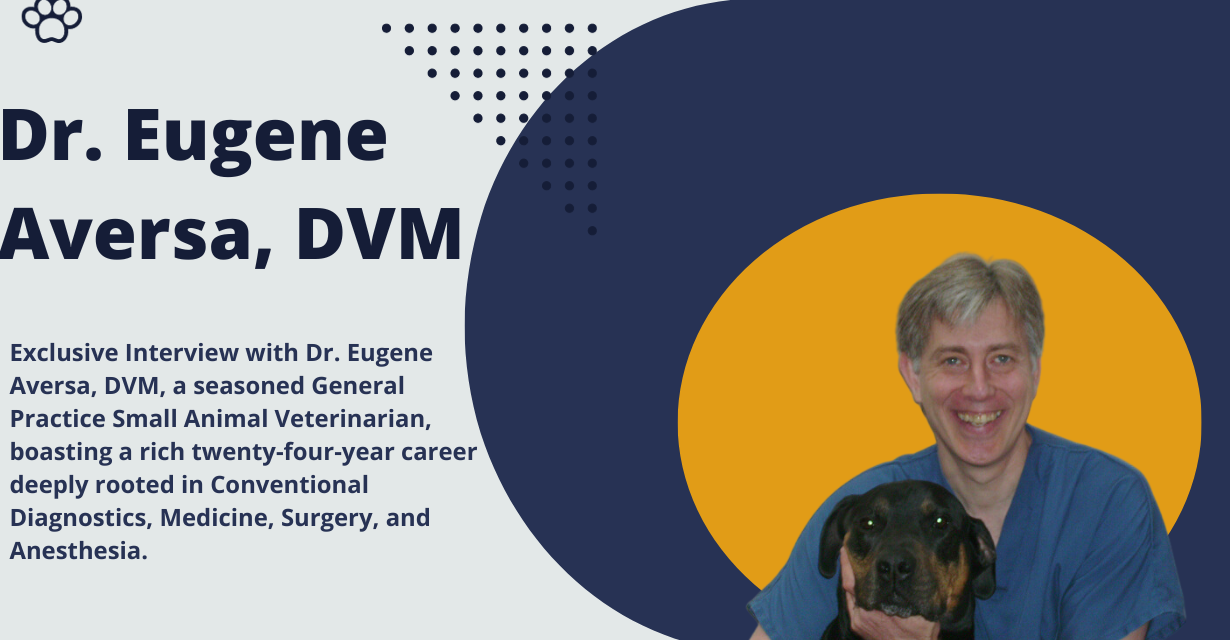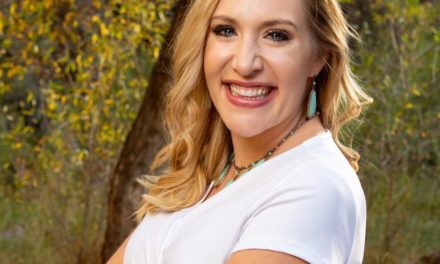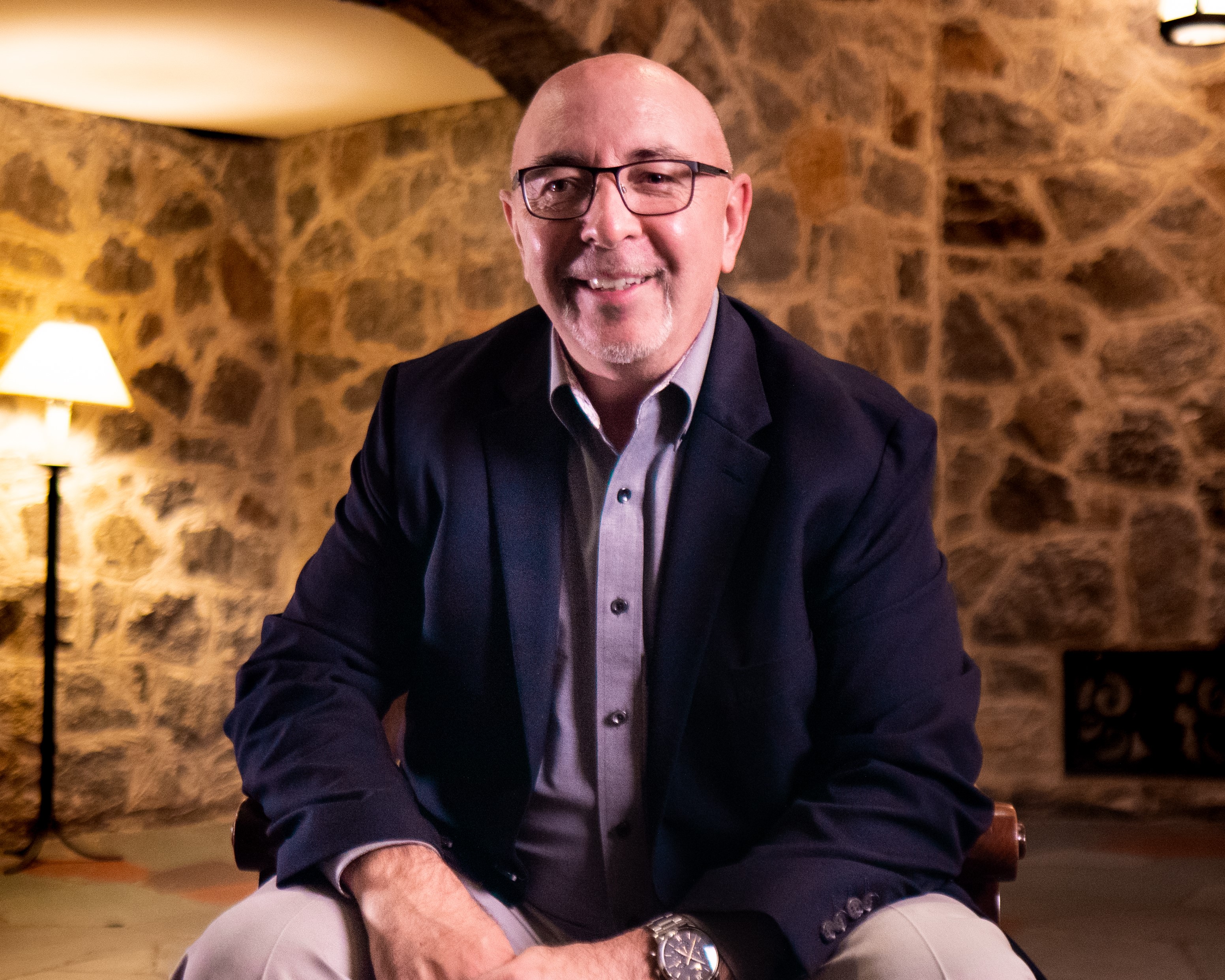Dr. Eugene Aversa, DVM, stands as a seasoned General Practice Small Animal Veterinarian, boasting a rich twenty-four-year career deeply rooted in Conventional Diagnostics, Medicine, Surgery, and Anesthesia.
Graduating from The Ohio State University in 1998 with a Doctorate of Veterinary Medicine, Dr. Aversa’s commitment to animal welfare is a thread woven throughout his life. Influenced by his father’s empathy toward stray cats and inspired by the love for animals passed down from his great-grandmother and her brother, Dr. Aversa embarked on a lifelong journey dedicated to the well-being of creatures great and small.
His journey into veterinary medicine is marked by impactful experiences, including volunteering at an animal shelter and producing a weekly television show highlighting the challenges faced by shelter animals across the US. Dr. Aversa’s commitment extended to participating in animal rights marches and advocating for the global well-being of animals.
Throughout his veterinary education, Dr. Aversa showcased exceptional dedication. Opting for a naturally deceased pony instead of a horse cadaver for dissection, he earned praise for his neuro-dissection skills. In a compassionate act, he and a classmate rescued a horse named Gulliver from slaughter, offering him a new life on a Michigan farm.
In another compassionate endeavor, Dr. Aversa rescued a pig named Emma from post-surgical slaughter, providing her sanctuary in Michigan alongside several pot-bellied pigs.
In his professional career, Dr. Aversa continually gave back to the community by donating his services to a local canine sanctuary for geriatric dogs, embodying his commitment to ethical veterinary practices.
On a personal level, Dr. Aversa has been a devoted guardian to several rescued animals, including his cherished dog Mel and cats Martha, Jaime, Freddie, Figaro, and several others. His commitment to their well-being is evident, with stories of nursing injured animals back to health and providing them with a life of comfort.
As a veterinarian, Dr. Aversa consistently prioritizes the needs of animals, approaching each case with thorough management and open communication with clients. His enduring dedication to compassionate care underscores a profound belief that, regardless of challenges, his mission is to serve the needs of animals and the people who cherish them.
Veterinary medicine must be a multi-faceted endeavor. What is one aspect of it that you especially enjoy?
Yes, indeed, veterinary medicine is certainly a very multi-faceted endeavor. It is what makes it so very challenging and enjoyable, and I enjoy many aspects of it. But one that always makes me feel good is working to make the geriatric dog or cat feel the best that they can feel in their later years. I find it most gratifying, and it never fails to put a smile on my face.
Can you be more specific?
Well, it is just like with elderly human beings. You cannot turn back the clock in many situations, but if you can significantly improve quality of life, you have given them a much more pleasant existence at a challenging stage of life. You know, the elderly just want to take it easy, and be as comfortable as they can. They have fought all the battles, and now it is time to sit back and relax. They have earned it.
So, as a veterinarian, what is one important aspect of health that you address to improve quality of life in your geriatric patients?
Obviously, mobility is a big concern. And the two factors that play a leading role in mobility are arthritis and obesity.
Some older dogs and cats suffer terribly with arthritis and many without the client even noticing until it is very advanced. I address this as early as possible as pain is a major factor in quality of life. Fortunately, there are several ways to provide relief. I usually start with joint supplementation like glucosamine, chondroitin, and hyaluronic acid, which I often see make a notable improvement. Starting a better diet and adding fish oil can be beneficial as well.
If these are not enough, anti-inflammatory medicines made specifically for cats and dogs can make a big difference as well. There is even a newer technology these days using monoclonal antibodies that can be used in combination. These can really help and are said to have a good long-term safety margin. It is a very happy moment for me to see the pet that was struggling to simply walk only weeks earlier trot in with new vigor.
Finally, one cannot ignore weight loss in the obese geriatric patient. It encourages greater mobility and minimizes the stress and strain on old, arthritic joints. So, the first thing I do for these patients is coach the client through a weight loss regimen.
Anything else?
Yes. You would be amazed at the state of some older animal’s mouths. Loose teeth, broken teeth, severe tarter, gingival recession, you name it. I cannot tell you how many times I have convinced a client to pursue full mouth dentistry and the results to overall wellbeing have been spectacular. No kidding. The change in energy and demeanor can be remarkable! It is no mystery really. When you consider removing all that toxicity and pain from the head, what else would you expect?
What about the other maladies that older pets get? Can you speak about these some?
Yes, but the list is quite extensive. So, I would like to stick to the things that are more wellness oriented. However, to your point, the thyroid comes to mind. The thyroid gland produces thyroid hormone which is a driver of metabolism. Too much will drive the system too hard, and too little will make the patient too sluggish.
Dogs typically get a deficiency of thyroid hormone, especially when they are older. It may present with overt clinical signs, but it may be more subtle. These dogs may have less energy, seem mopey, not excited to go on walks, and so forth. It can also decrease their appetite and lead to weight gain. Fortunately, this is a relatively quick fix with a small thyroid pill twice daily. And once again, the difference can be like night and day.
With cats, it is usually the opposite. They have too much thyroid hormone and may lose weight, not eat, and vomit. They may seem OK otherwise, but one day the client notices that Mitzi has lost two or three pounds. This, of course, is to be avoided in the geriatric cat, especially as it can damage other organs like the kidneys and the heart. Again, this is usually relatively easy to address. The older cat will usually gain weight back, lose that wasted appearance that many senior cats get, and generally do much better.
What are things that clients can look for in their older pet? Also, can you address ways that clients can enhance the quality of life on their own?
As mentioned previously, watching for difficult ambulation, being overweight or underweight, and looking in their mouth periodically are important. Also, as for any pet, monitor appetite, thirst, breathing, urination, and defecation. And annual physical exams and blood work are even more important at this stage of life.
But proactively, I have found that adding a pet specific digestive enzyme to increase nutritional assimilation from food, a pet specific multi-vitamin, and fish oil can make noticeable improvement in coat, eyes, and a general sense of wellbeing.
Also, what’s better than nature to revive the spirits? The older pet would probably love to be outside in the sun and soak up some rays when the weather is a bit warmer. Dogs enjoy going on walks, but the older pet should not be pushed more than their age and medical condition permits. Oil those joints and get the blood flowing somewhat. That is all. Cats love to sit in windows and watch the birds, squirrels, and rabbits. But make certain the cat has easy access and does not have to jump to get to high places.
What would be your parting words to clients regarding their older pet?
Remember, we are dealing with seniors here. The aging process is similar in them as it is in us. Keep their environments comfortable and peaceful. Be gentle and reassuring.
Animals are precious gifts. But senior animals even more. So, love them through all their changes, because nothing lasts forever.




